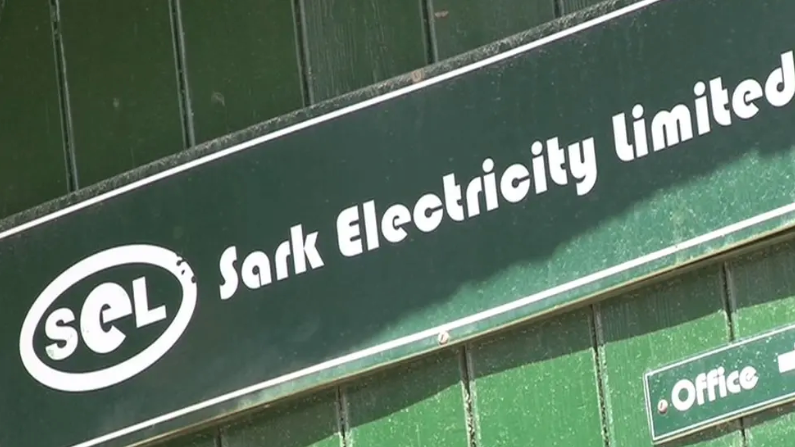Why Sark islanders pay the 'world's highest energy prices'
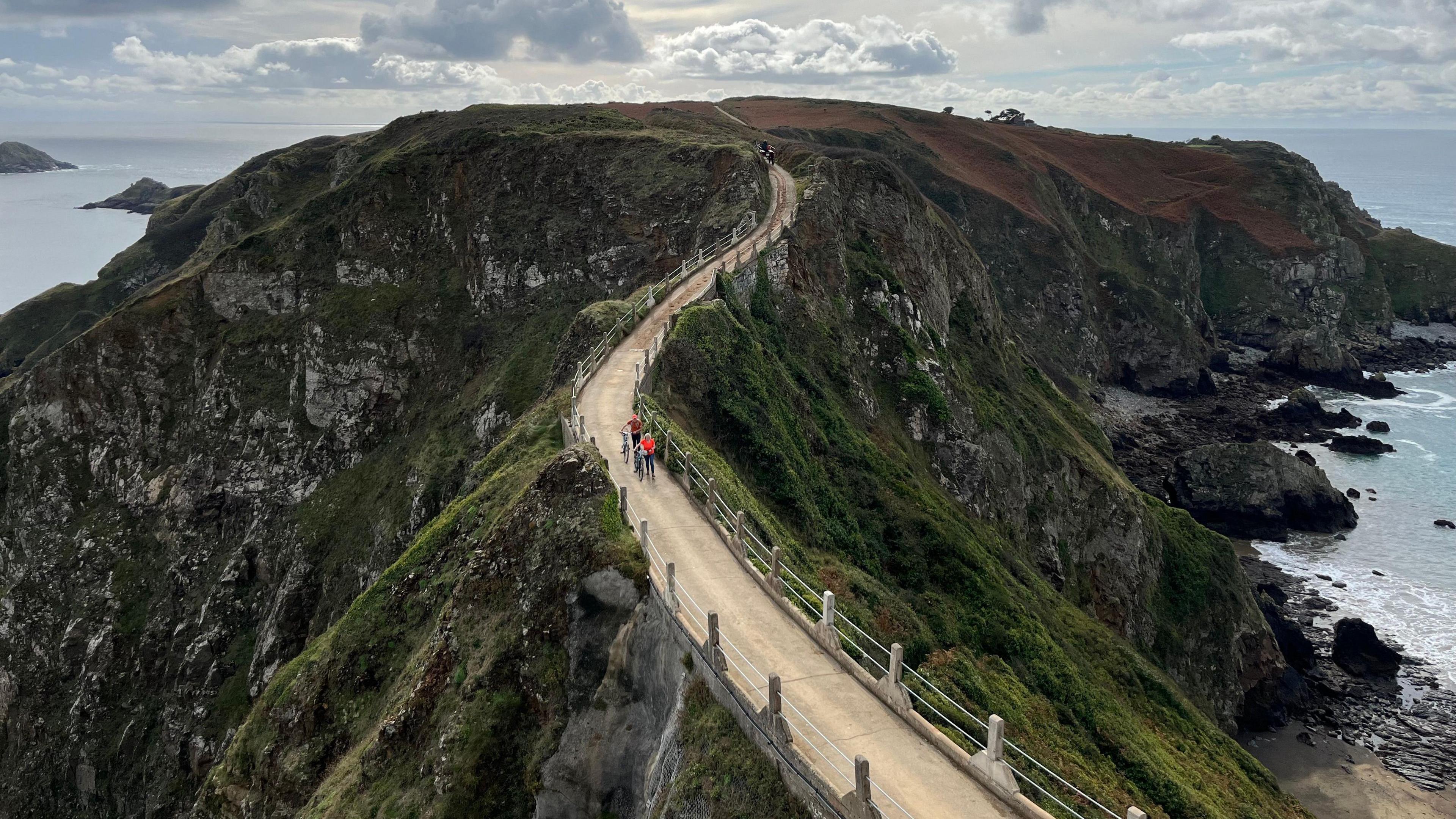
About 500 people live on the Channel Island of Sark and cars are banned - residents get around by horse-drawn carriage, tractor, bicycle, or on foot
- Published
"Why would someone with a young family invest in a life in Sark with such a public circus going on?"
That's the view of one recent migrant to Sark, a channel island of just under 500 people, part of the British Isles but with its own government, where people are paying what experts claim are the highest electricity prices in the world.
In the past two weeks, the price of one kilowatt hour (kWh) - or unit of electricity - has more than doubled to £1.13.
Alan Witney-Price, the owner and managing director of Sark Electricity Limited (SEL), says the increase covers the costs associated with a potential court battle over a proposed compulsory purchase by the Chief Pleas, the island's government of 18 elected members, a president and a hereditary lord.
"My initial reaction was that it's too high. It should not be that high even in the islands," says Dr Dilip Jena, an economics lecturer at the University of Dundee.
He said it was the highest price of power he had ever seen.
Tom Miller, co-founder of Cambridge Energy Economist, agrees it is the highest price of electricity in the world right now.
"I was very surprised, I would say, and that's coming from somebody who has seen all types of high-cost power situations around the world."
Sark Electricity bills rise
Why were prices already high?
With a small population, external, there are few to no economies of scale on offer for SEL, the island's only commercial power provider.
Alongside that, you have a grid where there has been minimal investment in the past two decades, which has led to a reliance on diesel generators, where the fuel needs to be transported by boat to the island of Guernsey, then onwards to Sark.
The current infrastructure has been described by independent experts as "dangerous" and "past its design life". , external

Independent experts have been highly critical of the state of Sark Electricity Limited's infrastructure
When did the power struggles start?
This most recent flashpoint over power is not the first confrontation between residents and the management of the power station.
The price of electricity first landed on the table of Sark's government in 2010. Six years of back and forth between the Chief Pleas and SEL led to the establishment of a regulator - the office of the Sark Electricity Prices Control Commissioner, external.
In 2018, the regulator initially capped the price of power at 66p per kWh.
That year, David Gordon-Brown, whose family had managed SEL for decades, threatened to turn the power off.
He said the new cap meant the price he could charge for electricity was not enough to cover his costs.
After a stand-off, which saw bartering for candles at the local pub the evening before the threatened switch-off, the two warring factions came to an agreement that the government would buy the company.
Seven years later, it is that ongoing process of the Chief Pleas trying to buy SEL that has led to the latest price hikes.
The current owner and managing director, Alan Witney-Price, has added a "legal levy" to the price of electricity to cover his bills while the compulsory purchase of the business goes through court.
He bought the firm in 2019 following the death of Mr Gordon-Brown.
The latest increase has led to businesses changing their opening hours, including Time and Tide - a restaurant on the island's high street, The Avenue.
In a post on social media, it stated its electricity bill had "nearly trebled" and it would be reviewing opening hours each week moving forward.
'I will not be paying the increases'
In response to the latest hike, Sark's Electricity Prices Control Commissioner Shane Lynch has said the price is "neither fair nor reasonable", but he cannot cap prices until at least October.
Former politician and business leader Tony Le Lievre is one of a number of residents who have said they will not pay the higher prices.
Mr Le Lievre said: "I am confident that the majority of residents will be doing the same thing. How SEL can imagine that this massive increase in the tariffs is justified is beyond me."
In response to the hike, guest house owner Helen Le Poidevin organised a meeting attended by about 80 residents to discuss the next steps.
"I'm angry. We can't have the TV on and we have to think about anything we do so much now. I am very worried about this," she said.
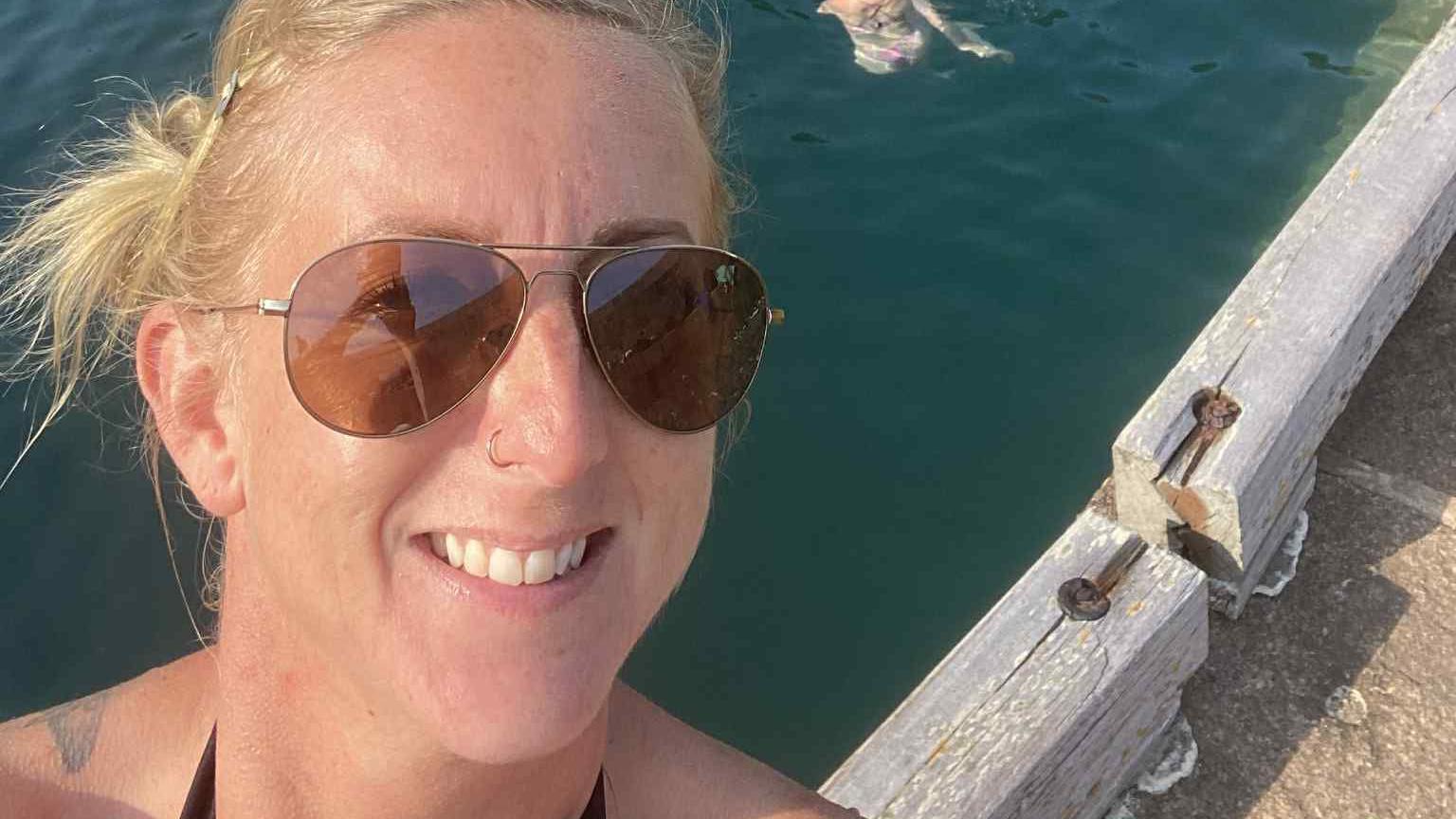
Helen Le Poidevin hopes a resolution can be found soon
How close is Chief Pleas to buying SEL?
Since the announcement that the Chief Pleas intended to buy the power station, progress has been slow on the proposed purchase.
In the meantime, it has worked with experts to design a new power system for the island, focused on renewables, which could cost £8.6m.
The Chief Pleas also passed a law to allow it to carry out a compulsory purchase, with the hope of not having to use it on SEL, but the understanding is it may have to.
The Sark government says it has appointed a valuer for SEL and the ball is in the firm's court as to whether that valuer is appropriate.
Conseiller Mike Locke, who is leading the island's committee looking at the future of power locally, gave his reaction to the latest price hike: "The pressure it has put on the vulnerable members of our community, the risk to safety and the negative impact it is having on businesses, is not acceptable."
Follow BBC Guernsey on X, external and Facebook, external and Instagram, external. Send your story ideas to channel.islands@bbc.co.uk, external.
Related topics
- Published2 September
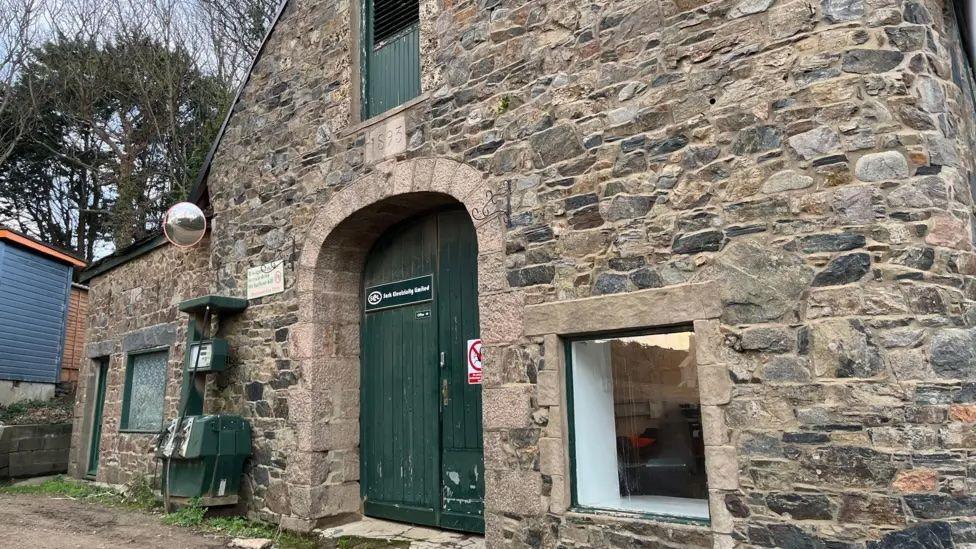
- Published8 November 2018
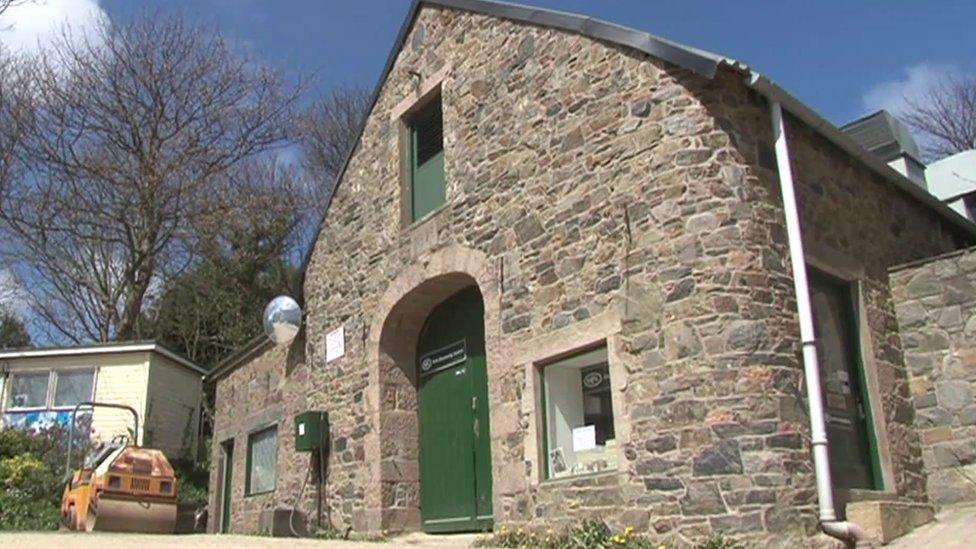
- Published29 November 2018
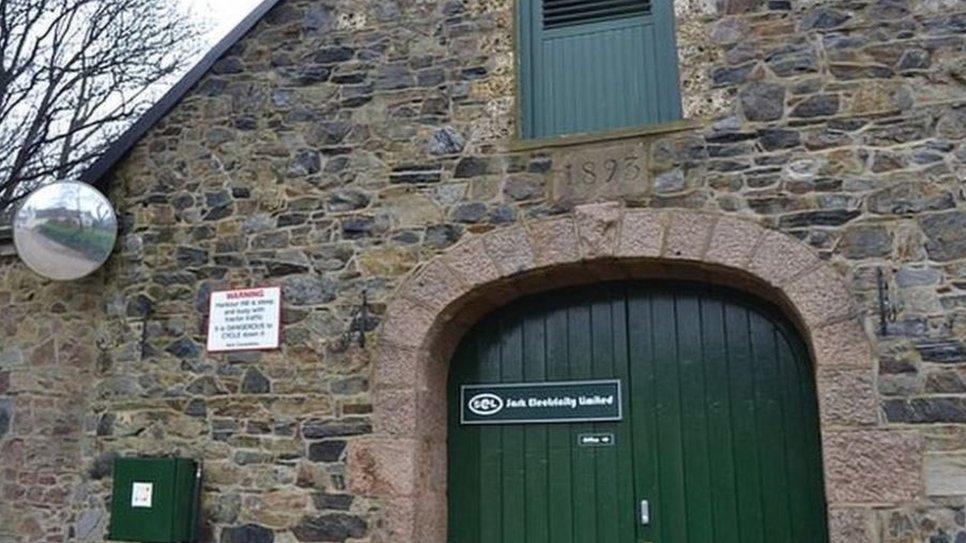
- Published2 September

- Published18 January 2024
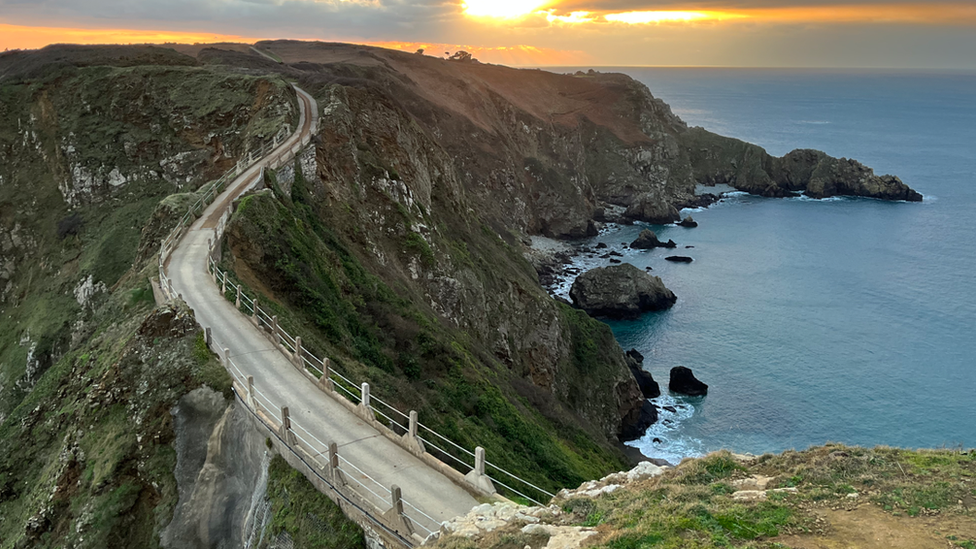
- Published26 June
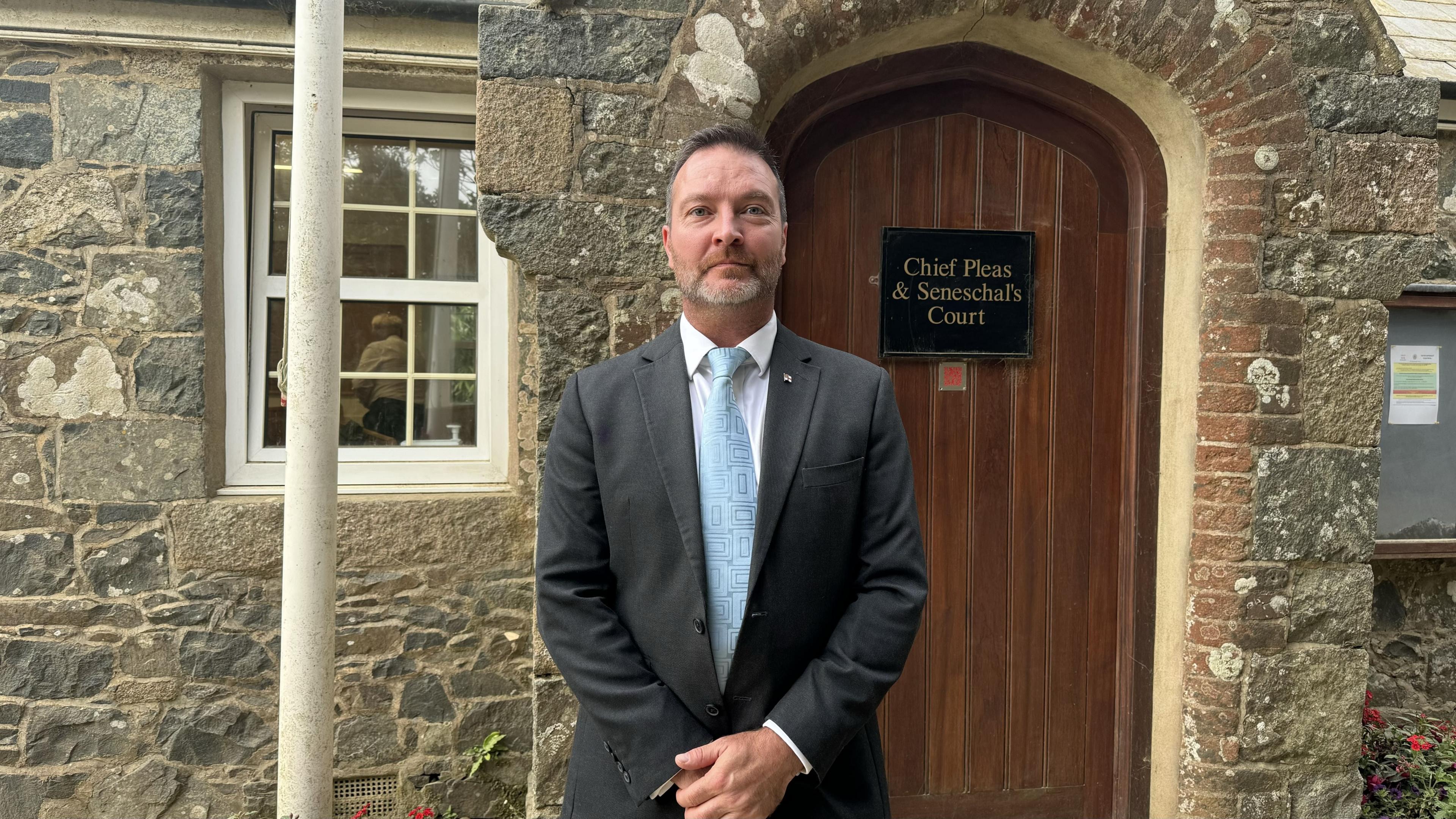
- Published26 August
